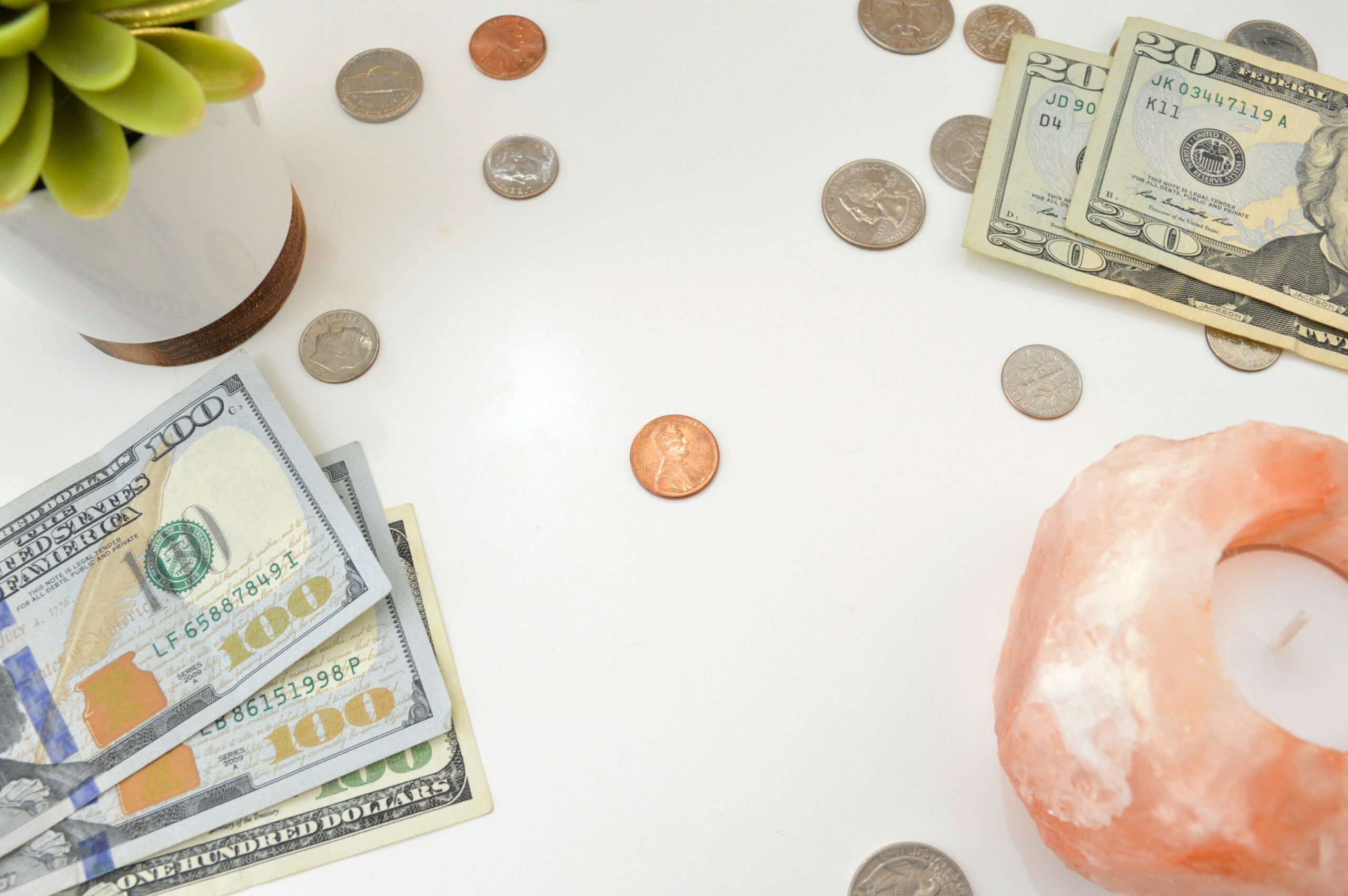Financial Health Breakthrough: 5 Proven Strategies to Transform Your Money Mindset
Introduction
In a world where financial stress tops the list of important causes of concern, a truth is clear: your money mentality shapes your life. But success here is not just about income or expenses. It is about health – not only physically, but also emotional, mental and yes, economic health.
Most pursue money, hopefully bringing peace to the end. But without a healthy relationship with it, money can disappear, stress can multiply and remain out of independence. Real gaming exchanger? A change in mindset.
Real health is not only measured in blood pressure or sleep quality – it is also reflected in the bank balance, your expenses and your spirit of financial security. When your financial health blooms, your self-confidence, relationship and general welfare. Here are 5 proven strategies to change the way you think of money and unlock lasting financial health.
Table of Contents
Why Financial Health Is Real Health
Before we dive into strategies, let’s define it again what health means. For decades, we have separated physical health from emotional health and economic health. But science and psychology now confirm: They are deeply connected. Chronic cash stress increases the risk of cortisol, heart disease, insomnia, and depression.
Economic uncertainty is associated with low self-esteem, relationship struggles, and life satisfaction.On the other hand, people with strong financial health services report high energy, better decisions and more flexibility.
The World Health Organization defines health as “full physical, mental and social welfare conditions”. Note that it’s not just physical. Economic stability is a column of social and mental welfare. This is why economic health is health.
Still, most of us were never learned how to handle money emotionally. We learned mathematics at school, but how to deal with fear, shame or guilt when the bill stacked.
Good news? Your money is not resolved. With consciousness and proper equipment, you can resume your faith, fix the relationship with money and create a permanent abundance.Let’s start.
Strategy #1: Heal Your Money Story (The Root of Financial Health)
Every monetary dependency you have—overspending, going off budget, hoarding coins, or self-sabotaging possibilities—stems from a deeper story.
Your “cash tale” is the invisible script jogging inside history, fashioned through early life studies, cultural messages, and beyond screw ups. Maybe you grew up hearing:“Money doesn’t grow on trees.”“Rich people are grasping.”“We can’t have enough money for that.”These terms aren’t simply statements—they come to be ideals. And beliefs end up as behaviors.To transform your economic fitness, you ought to first discover and rewrite your money story.
1. How to do it:
Reflect on Your Money Memories
Ask yourself:What did your dad and mom say about money? When did you first feel shame or satisfaction about spending?What essential financial activities shaped your early views (layoffs, debt, windfalls)?Write all of it down. No judgment—just attention.
Identify Limiting Beliefs
Common ones encompass: “I’ll in no way be top with cash. Money is evil. “I don’t deserve wealth.”These beliefs sabotage your efforts earlier than you even begin.
Rewrite Your Narrative
Replace vintage scripts with empowering truths:
“I am gaining knowledge to manipulate cash with knowledge. Money is a device that may create freedom and truth. “I deserve financial peace and abundance.”Healing your cash tale isn’t therapy—it’s monetary fitness protection. Just like brushing your teeth prevents decay, emotional readability prevents self-sabotage.
Strategy #2: Shift from Scarcity to Abundance (The Mindset of Wealth)
Scarcity questioning says: “There’s in no way enough.”Abundance questioning says: “There’s enough, and I can create more.”Scarcity breeds worry: fear of missing out, fear of spending, worry of no longer having. It results in impulsive buying (“I may not get this again!”) or severe frugality that harms your high-quality of existence.Abundance, then again, fosters gratitude, patience, and strategic action. It doesn’t imply ignoring truth—it manner believing to your ability to develop, adapt, and thrive.
1. How to cultivate an abundance attitude:
Practice Gratitude for What You Have
Each night, call three financial benefits:
“I’m thankful I paid my smartphone invoice.”
“I’m grateful for the coffee I sold myself.”
Gratitude rewires your brain to look abundance, not lack.
Reframe “I Can’t Afford It”
Instead of shutting down, say:
“I can’t have enough money this proper now, however I’m growing a plan to make it feasible.”
This easy shift continues you in answer mode.
Celebrate Small Wins
Paid off $50 of debt? Saved your first $a hundred? That’s progress. Acknowledge it. Joy fuels momentum.When you shift from scarcity to abundance, you stop surviving and start building. That’s the foundation of true monetary health.
Strategy #3: Automate Your Way to Freedom (The Power of Systems)
Inspiration fades. The willpower fails. But the system? System win.Most are dependent on discipline to manage money. They budget once, promise to save, and then life – car repair, medical bill, emotional shopping and plan collapses.
The secret to economically healthy people? They do not depend on will. They create automatic systems that make good decisions comfortable.
1. How to automate your financial health:
Pay you first
Put an automatic transfer in savings or investment accounts for a day after payday. Even $ 20 a week adds up over time. Make it invisible and it will be inevitable.
Use the “two-account” rule
Separate your expenses and savings. An account for bills and daily expenses. Another (emergency fund, holiday, retirement) for goals. Authentic transfer between them.
Unclean track
Use apps such as Mint, YNAB or PocketGuard so that accounts are monitored to sink and use without manual entry. Enter the notification of monitoring. Knowledge without stress.
Systems do not eliminate challenges, but they reduce friction. And when it seems easy to manage the money, you are more likely to promote your long -term health.
Strategy #4: Align Spending With Values (Spend with Purpose)
You don’t have to earn more to feel rich. You must use meaningful.Most financial advice focuses on cost cuts: Cancel membership, drink coffee at home, second hand shop. But without purpose, the resentment leads to resentment. Use by your values.If you emphasize the family, but at the same time use very little at the time of quality, you will feel empty, even if you save. If you affect development but never invest in learning, you will remain stable.
1. How to use with purpose:
Revise your expenses by category
Group expenses: housing, food, entertainment, self-development, gifts, etc.
Then rank each category: Does it carry me closer to your values?
Cut “noise”, don’t be happy
Remove the expenses that lose you (unused subscriptions, impulsive purchases), but fuel your purpose (therapy, course, travel).
Create a “Joy Budget”
Take a specified amount each month for the things that shed light – with friends, a hobby, a massage. Crime-free expenses give confidence in themselves. When your money flows with meaning, every dollar becomes a task with confidence. This is financial health in action.
Strategy #5: Build Resilience, Not Just Riches (Prepare for the Unexpected)
Real economic health is not about having a million dollars. It’s about security when life throws a curve. Job loss. Medical emergency. Breach of the car. This is “if” landscape – they are “when”. And without a buffer, they can derail your life.Flexibility is not done in a crisis. It is made at rest.
1. How to create economic flexibility:
1. Start an emergency fund
Dimensions for $ 500, then $ 1000, then 3-6 months used. Keep it in a separate, high savings account. This is not for holidays – it is for existence.
2. Be insured
Health, life, disability, and tenant insurance – these are not luxuries. They are shields against terrible losses. Protect your health and your money.
3. Diversify your income
An income flow = an error point. Explore side houses, freelance work or passive income. Even a small other current increases safety.
4. Review my plan quarterly
Life’s changes. So you should have a financial strategy. Check -in to adjust the goals, track progress and celebrate victory. Flexibility makes fear of trust. It says: “I’m ready.” And that mentality is precious.
The Ripple Effect of Financial Health
When your financial health improves, everything else increases with it.
You sleep better. You argue less with loved ones. You take a smart risk. You give more independence. You live with less fear and more freedom.
Your financial health trip now starts
You should not be right. You don’t have to fix everything overnight. But you have to start.
Start with a strategy:
Fix a limited belief.Automate a savings transfer. Spend a dollar on something that really matters.Small steps cause seismic changes .Because economic health is not just about money. It’s about health – in any sense of the word. It is about living with purpose, peace and power.You are not broken. You stayAnd your success begins today. Money is energy. It flows at the site where it is used with reception, respect and intention. When you change the money tanket, you don’t just change your bank account – you change your life. The answer is already in you. Now, build it.
1. What is a money mindset?
A money mindset is your set of beliefs and attitudes about money, which influence how you earn, spend, and save.
2. How can I improve my financial health quickly?
Start by tracking expenses, setting clear goals, and practicing gratitude to shift your mindset around money.
3. Are these strategies backed by experts?
Yes—these strategies are based on proven financial principles used by coaches, psychologists, and wealth experts.










